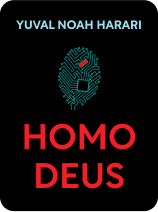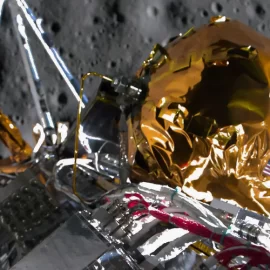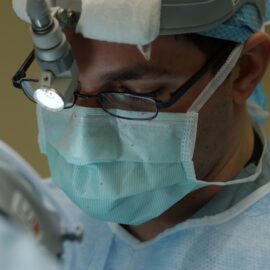

This article is an excerpt from the Shortform book guide to "Homo Deus" by Yuval Noah Harari. Shortform has the world's best summaries and analyses of books you should be reading.
Like this article? Sign up for a free trial here .
Do we have free will? Do you think our choices come from the place of volition or could they be predetermined by fate?
In the realm of individual subjectivity, we intuitively feel that our choices and decisions are the product of free will. But are they really? There is actually no consensus as to whether we really do have free will. In fact, the evidence points to the contrary.
Keep reading for the answer to the question: do we have free will?
Choice Versus Fate
For centuries, humans have been told that they possess free will, or the power to make their own decisions. Before the advent of brain scans and modern psychology, the simplest way to explain why someone would do something was to say, “They chose to.” It gave people authority over their destiny as they maintained total control over the choices they made.
However, researchers have challenged the theory of free will through the use of neuroscience and brain mapping. The electro-chemical processes in the brain are subconscious, meaning humans have no control over the neural system that creates thought or action. When external stimuli cause a reaction in the brain, the human body will naturally respond to the electrical and chemical interactions. For example, you don’t choose to get angry. Anger emerges naturally due to the body’s response to external stimulation.
These reactions can be either deterministic or random, but they’re never “free”:
- A deterministic reaction is the direct response of the brain to an external stimulus. For example, if you accidentally put your hand on a hot pan, the electrical signals in your brain will tell you to retract your hand.
- A random reaction is the result of an unpredictable event in the brain such as the decomposition of an atom or the misfiring of an electrical impulse. For
- example, your brain may accidentally cause you to shiver after randomly firing off an impulse.
While scientists are able to explain the electro-chemical responses in the brain, there have been no major discoveries that support the concept of free will. In fact, evolutionary theory directly contradicts the concept of free will.
According to the theory of evolution, all animals have developed according to their genetic code and natural selection. Animals with stronger genes will make better “choices” because their genetic makeup instructs them to behave in a certain way, allowing them to pass their genes on to future generations.
Conversely, animals with weaker genes will make poorer “choices,” restricting them from passing along their genes. If animals, including humans, had the ability to freely choose their behaviors, then natural selection couldn’t exist because choice would be separate from genetic code, meaning that the actions of the animals would have nothing to do with passing along the strongest genes.
Human Desire and Free Will
People often confuse desire with free will. They conclude that they have free will because they have the ability to act on their desires. However, while animals, including humans, do possess the ability to make choices based on their desires, they don’t possess the ability to choose their wants or desires. These are determined by involuntary electro-chemical reactions in the brain. For example, while you may be able to choose not to attack your annoying colleague when the feeling arises, you have no control over your annoyance.
On a larger scale, uncontrollable human desire leads to the creation of human perspective, but the perspective doesn’t actually stem from free will. For example, your political affiliation is the result of following or fighting against your desires. While you may have logical reasoning behind your decision, you can’t control the way that you feel about a candidate, policy, or behavior.
In one particular study, researchers asked participants to flip one of two switches while connected to a brain scanner. Based on which area of the brain activated, the scientists could predict which switch the person was going to flip before they took the action. Specific areas of the brain would light up hundreds of milliseconds before the participants were conscious of their decision, leading researchers to conclude that the participants were responding to activity in the brain instead of making a “free” choice.

———End of Preview———
Like what you just read? Read the rest of the world's best book summary and analysis of Yuval Noah Harari's "Homo Deus" at Shortform .
Here's what you'll find in our full Homo Deus summary :
- Why technology is replacing humanist ideals
- How previous generations relied on prayer to deal with serious problems
- How AI and algorithms are going to run the world






